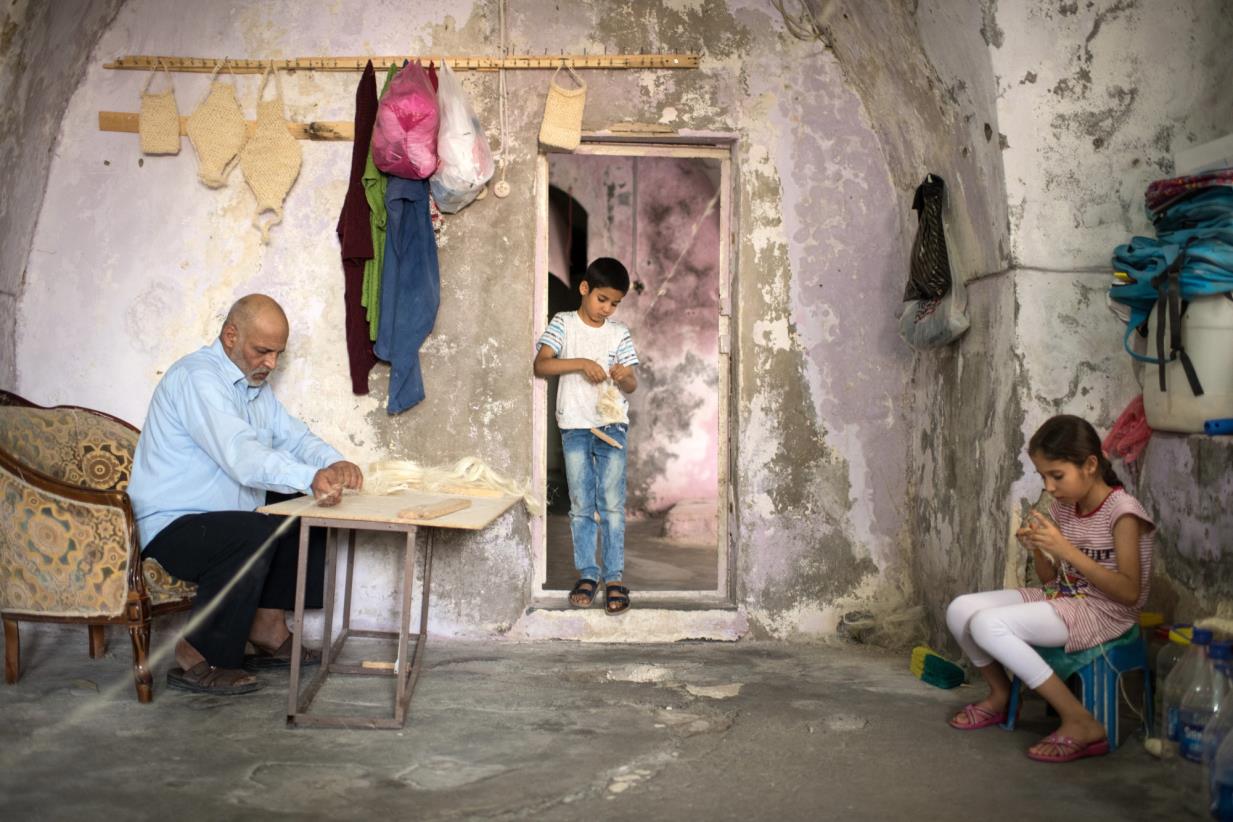FAO launches dialogue in Turkey to increase social protection for rural communities

What challenges do vulnerable agricultural communities face in accessing rural social protection, and how can social security be extended to those not covered by the system? This was the critical question a group of experts sought to answer at a virtual workshop held on 5 May. The online event, coordinated by FAO and Ankara University, emphasized the importance of expanding the social security net to include people in dire need, especially in the context of the COVID-19 pandemic.
More than 180 participants attended from FAO, the Delegation of the European Union to Turkey, European Civil Protection and Humanitarian Aid Operations, the Ministry of Family, Labour and Social Services, the Ministry of Agriculture and Forestry, Ankara University, and the Ankara University Development Studies Research and Application Centre.
The discussion launched a national dialogue among key partners and actors in rural and social protection sectors, to create inclusive policies and programmes to support the social protection of vulnerable rural groups. The dialogue feeds into FAO Turkey’s efforts under the Syrian Refugee Response Plan and aims to better link the national and local governments with European Union and non-governmental organizations, for building organizational capacities to cover more social security schemes.
The workshop was opened by Viorel Gutu, FAO Subregional Coordinator and Representative in Turkey and moderated by Ayşegül Selışık, FAO Assistant Representative in Turkey. Further key speakers included Libor Chlad, EU Delegation to Turkey Counsellor and Head of Section of the Facility for Refugees in Turkey, Necdet Ünüvar, Rector of Ankara University, Ali Aybey, Director of the International Labour force at the Ministry of Labour and Social Security, Sencer Kiremitçi, Head of Department of R&D and Surür Kır, Head of Department of Training and Extension at the Ministry of Agriculture and Forestry.
“According to an FAO study, 94 percent of Syrian refugees and 64 percent of Turkish people working in seasonal agriculture have struggled to find jobs during the pandemic, leaving many to adopt negative coping mechanisms including access to basic needs and services,” said Viorel Gutu in his opening remarks.
“More than 80 percent of the population in Turkey live in urban areas, and we are expecting an increase. Agricultural lands are shrinking, and farmers and workers are ageing,” noted Ebru Öztüm Tümer, Head of International Labour Force Policy, Agreements and Legislation Department at the Ministry of Labour and Social Security. She also added that the Ministry of Agriculture and Forestry has established a national strategy to help the agricultural sector respond to increasing rural needs, emphasizing the vital contribution of refugees and migrants to ensuring the continuity of food supplies in Turkey, on the basis that seasonal agricultural workers account for half of the labour supply in agriculture.
An FAO assessment conducted in partnership with the Ankara University Development Studies Research and Application Centre found that the situation of 55 percent of Turkish agricultural workers surveyed has declined due to the influx of Syrian seasonal agricultural workers. The EU counsellor Libor Chlad affirmed the willingness of the EU Delegation to Turkey to support the Government of Turkey and its partners, including FAO, in their efforts to improve the socio-economic integration of Syrians under Temporary Protection and vulnerable host communities, in order to alleviate hunger and poverty and ensure food security.
18 May 2021, Ankara, Turkey
